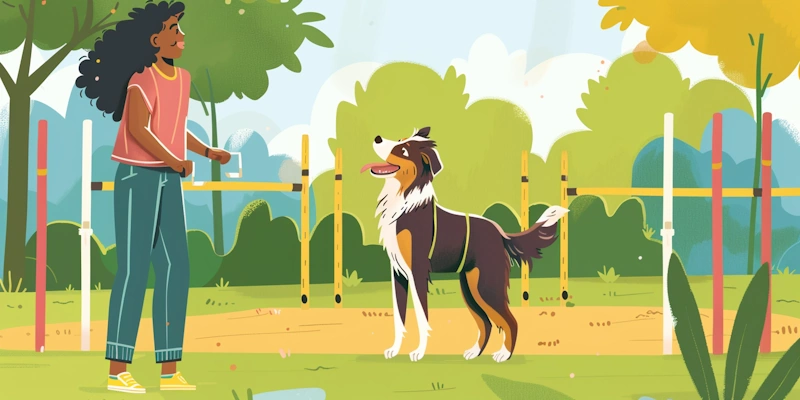Training a dog can be a rewarding experience that strengthens the bond between pet and owner. However, it often comes with its set of challenges. Understanding these common hurdles and knowing how to overcome them can make the training process smoother and more effective. Here are seven common dog training challenges and expert solutions to help you navigate these issues.
1. Inconsistency
Challenge: Inconsistency in commands, rewards, and discipline can confuse dogs and hinder their learning progress.
Solution: Always use the same commands and rewards system. Make sure all family members use the same methods and commands to avoid confusing your dog. Consistency is key in all aspects of training.
2. Timing of Corrections and Rewards

Challenge: Poor timing can make it difficult for your dog to connect their behavior with corrections or rewards.
Solution: Provide immediate feedback. Dogs live in the moment, so it's crucial to correct or reward them within seconds of their behavior. This helps them make clear associations.
3. Overusing Treats
Challenge: Relying too much on treats can lead to a dog that only performs commands when a treat is visible.
Solution: Gradually reduce the frequency of treats and introduce variable reinforcement schedules. Continue to use treats intermittently to maintain learned behaviors. Also, incorporate other types of rewards like praise, toys, and play.
4. Lack of Generalization
Challenge: Dogs might not generalize learning across different environments, displaying perfect behavior at home but not elsewhere.
Solution: Train in various settings. Once your dog masters a command in a familiar place, practice in new locations with different levels of distractions. This helps your dog understand that commands apply everywhere.
5. Fear and Anxiety

Challenge: Fear or anxiety can inhibit a dog's ability to learn and may lead to aggression or avoidance behaviors.
Solution: Address the root cause of the fear. Use positive reinforcement and counter-conditioning techniques to create positive associations with fearful situations or objects. Patience and gradual exposure are crucial.
6. Skipping the Basics
Challenge: Moving too quickly through training stages can leave foundational gaps in a dog’s education, leading to problems with more advanced commands.
Solution: Build a solid foundation first. Make sure your dog has mastered basic commands before progressing to complex tasks. Reinforce these basics regularly to keep them sharp.
7. Unrealistic Expectations
Challenge: Expecting too much too soon can be frustrating for both the dog and the trainer.
Solution: Set realistic, achievable goals. Understand that progress depends on a variety of factors including the dog’s breed, age, and temperament. Celebrate small victories to stay motivated.
Final Thoughts
Dog training is not a linear process and each dog is unique. It requires patience, understanding, and flexibility from the trainer. By recognizing and adapting to the common challenges highlighted above, you can ensure a more successful and enjoyable training experience for both you and your dog. Remember, the goal of training is not just obedience, but fostering a loving and understanding relationship with your furry friend.